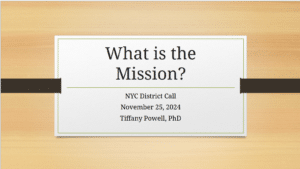Camper Behavioral Correction Guideline
Overview:
It is the goal of Camp Deerpark to provide summer staff with tools, ideas, and a structured system for guiding campers in positive behavior. Because the camp setting is sometimes physically and emotionally draining it is inevitable that camper (and sometimes staff) behavior will at times be inappropriate. As Camp Deerpark staff it is our job to love each camper with the love of Christ in spite of their behavior. It is our job to be sensitive to each child’s emotional, physical, and spiritual needs as we seek to avoid behavioral problems before they happen. The following tools and strategies will simply help us in the process of loving children. True love for children only comes through the grace of God as we allow God to fill us with His Spirit.
Guiding Principles:
- Proactive approaches should be used to reduce the need for reactive discipline.
- Intervention should happen early to avoid escalation
- Interventions should never leave the camper feeling worthless, degraded, or estranged from the counselor.
- Correction should be done privately whenever possible
- Corporal (physical) punishment of any kind is unacceptable
- Interventions should lead the camper to positive behavior
Nine habits of a highly effective counselor
1. Know that Christ loves you, love others
It seems really basic, but keep the knowledge of Christ’s love for you fresh in your mind. You have screwed up in life, hurt people, broken relationships, made some really bad choices. Christ doesn’t let that stand in the way. He loves you, a lot! He died for you. Keep this in mind as you try to find the strength to love difficult campers.
2. Never Yell
“When you yell, you lose” The love of Christ is not communicated with a raised voice. A raised voice communicates anger, frustration, contempt, disrespect, and desperation. It also creates a relational wall between the counselor and the camper. Communicate in a way that shows grace, respect for the camper, understanding, and a firm seriousness.
3. View behavior in terms of needs.
Challenging behavior sends the message of needs not being met. The behavior could mean, “I’m lonely,” “I’m bored,” “I have no power,” “I don’t feel safe,” “I don’t feel valued,” “I have physical pain,” or indicate other needs. A single behavior, too, can reflect several needs. Behaviors can also reflect emotional damage the child might have experienced because of needs that were not met at a younger age.
4. Work with the camper, not against the camper.
It is not you against them. It is us against misbehavior. Ask campers how you can help and support them. Get their input into how to handle their misbehavior. Ask them for ideas. Give campers ideas on how to handle their emotions prior to the emotions arising. This will improve the person’s whole life-relationships, camp participation, increased choices, skill development, and contributions to others.
5. Don’t assume.
Diagnostic labels and past performance often cause people to underestimate another’s potential. Concentrate on the person’s strengths and providing adequate support rather than concentrating on deficiencies associated with the diagnostic label. Speak to the person even if you’re not sure whether the person understands. Never speak about the person with a disability as if that person wasn’t present. It isn’t polite, nor is it supportive.
6. Relationships make all the difference.
Many children with emotional differences live in extraordinary isolation. Some depend entirely on their family or make poor social relationships. Take the time to develop relationships with your campers and especially those that are challenging.
7. Help the person to develop a positive identity.
A person with challenging behavior commonly gets identified as a “problem,” which carries a negative message for the person and those around him or her. Build a positive identity by helping the person find a way to make a contribution and better support those in his or her life. Make sure that the person’s strengths and capabilities don’t get forgotten when reducing or eliminating challenging behavior.
8. Give choices.
If the person uses challenging behavior to express needs, give the person choices and allow the person to make choices throughout the day. Say “I know you are upset. What will help you calm down? A walk? A different activity?” rather than “Do it my way, or else.” Choice does not mean free rein. Set limits with the input of the person with a disability. Every relationship has limits. 9. Help the person to have more fun.
Fun is a powerful cure for problem behaviors. Is the person with the having the same amount of fun as other people you know? If not, look for things the person enjoys doing. Make fun a goal.
Related Entries
Share:
What Are You Tapped Into?
Yesterday we began tapping maple trees, officially opening maple syrup making season at Camp Deerpark! Last year, the transition kept us from producing syrup, so it feels great to be back to it. Starting off, however, has been a bit of a challenge since things are pretty arctic around here. The entire ground is covered…
What Does it Mean to be Spirit-Led with Pastor Mark Perri
One small contribution I can make is to share story with you. This could be valuable in several ways: First, I’m coming to the Mennonites from the outside — from non-denominational GenX “simple/ organic/ emergent church“. Sometimes people coming from outside-in have a helpful perspective for those trying to move from inside-out. Second, as an…
2025 NYC LMC District Call Schedule
Mark these dates in your calendar if you’re part of the NYC LMC District and want to attend the English-language fellowship and resourcing calls led by Bishop Hyacinth Stevens: January 27th – 6:30 PM February 24th – 6:30 PM March 31st – 6:30 PM April 28th – 6:30 PM May 19th – 6:30 PM June 30th…
Winter: Life Under the Surface
On the surface, winter with its cracking and cold seems like the enemy of life. Everything sleeps as though dead, and Camp — quiet and empty — sits waiting. But under the surface, winter is revealed to be a friend to life, not an enemy. In the deep frost, God opens the soil for Spring’s…
Peace Making Presents
This is Session 4 of the Prince of Peace: Jesus and Peacebuilding from the Election to the Holidays webinar series. Advent celebrates the central fact that God began building peace with us by giving a Gift. Following this example, gifts are a powerful tool for peacebuilding in our lives, relationships, and organizations. We’ll explore how…
Pain and Need Aren’t Partisan
This is Session 3 of the Prince of Peace: Jesus and Peacebuilding from the Election to the Holidays webinar series. (Click here to sign up for session invites.) Sometimes people seem so different from us, we automatically assume we can’t connect. Or, we tried to connect on some level, but it quickly became way too…
What is A Mission Statement?
On the LMC NYC District call this month, Dr. Tiffany shared critical information on what is and what is not a mission statement. This is critical as we think about moving the congregations in our district forward towards mission, optimize the mission already underway, and align together on the LMC mission as district churches. In…
Advent Calendar
Count Down the Days to Christmas with Camp! Jesus is the center of our Camp community. Let’s celebrate together the coming of the One who brings peace and salvation and life everlasting to humanity. We’ll be posting each day to Facebook and Instagram stories, but you can get our daily post in your email inbox!…
A Spirit-filled Christmas: The Joy in Judgement
The end of this week (Black Friday) marks the beginning of the Christmas season for many. (Though the big-box retailers had stuff out before Halloween, can you believe it!?!) For our culture, this season is a time of Joy. We gather for feasting and presents and the delighting of children. And despite the growing chill…
From Inner Peace to the Holiday Table
This is Session 2 of the Prince of Peace: Jesus and Peacebuilding from the Election to the Holidays webinar series. (Click here to sign up for session invites.) This session is about what we do when the people around us challenge our peace. It requires us to draw on something deeper in order to continue…
- « Previous
- 1
- 2
- 3
- 4
- Next »







